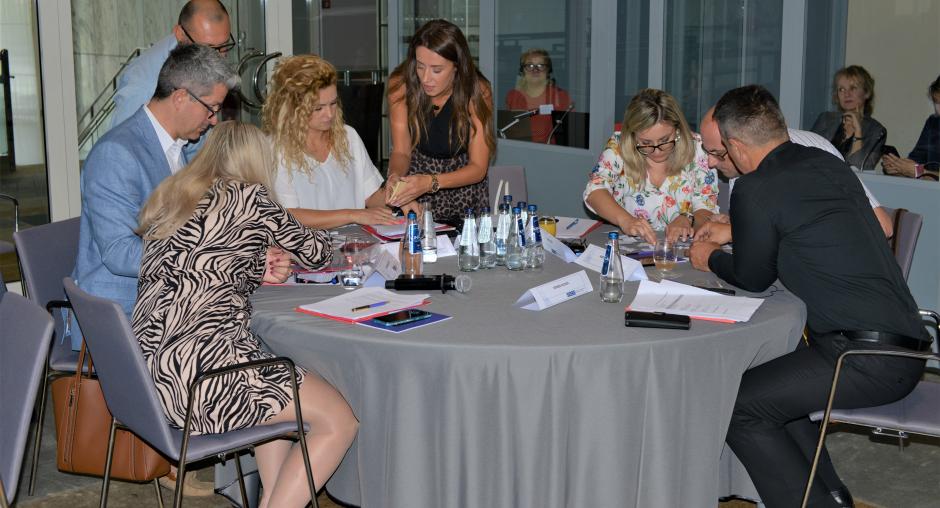OSCE continues efforts to prevent and combat gender-based violence in South Eastern Europe

The OSCE Transnational Threats Department's Strategic Police Matters Unit (TNTD/SPMU) organized a regional training-of-trainer course on gender-sensitive policing of violence against women and girls (VAWG) from 25 to 29 July 2022 in Warsaw, Poland.
The training was conducted in partnership with the OSCE Office for Democratic Institutions and Human Rights (ODIHR) and the OSCE Gender Issues Programme’s Women and Men Innovating and Networking for Gender Equality (WIN) project.
A total of 30 police officers and prosecutors (21 women and 9 men) from Albania, Bosnia and Herzegovina, Montenegro, North Macedonia, and Serbia were trained to effectively respond to cases of VAWG while maintaining a victim/survivor-centred approach.
Maaike van Adrichem, manager of the WIN project said that “barriers for women to report are related to shame, stigma, and secondary victimization, and that innovative, transformative approaches should be applied when conducting training for law enforcement.”
“The police play a hugely important role in protecting the human rights of citizens, including by preventing and addressing violence against women and girls,” highlighted Andrea Huber, Head of ODIHR’s Human Rights Department.
This course aimed to prevent and fight gender-based violence and protect victims/survivors. The five-day initiative also covered topics such as causes and cycles of violence, violence prevention, harmful biases, attitudes and stereotypes, risk assessment, victim/survivor protection protocols, referral mechanisms and inter-agency co-operation.
Bjorn Tore Saltvik, project manager at the TNTD, stated that “by sharing their knowledge and skills with their peers, the trained trainers become agents of change.”
To support the criminal justice practitioners from South Eastern Europe in their fight against gender-based violence, the OSCE will organize national workshops, to adapt the curricula to the local frameworks, and national specialized training courses. These activities are planned for the second half of 2022 and will contribute to the full implementation of the Council of Europe’s Convention on preventing and combating violence against women and domestic violence (Istanbul Convention) in Albania, Bosnia and Herzegovina, Montenegro, North Macedonia, and Serbia.
These activities take place as part of the project Enhancing Criminal Justice Capacities for Combating Gender-based Violence in South-Eastern Europe (2021-2024).
